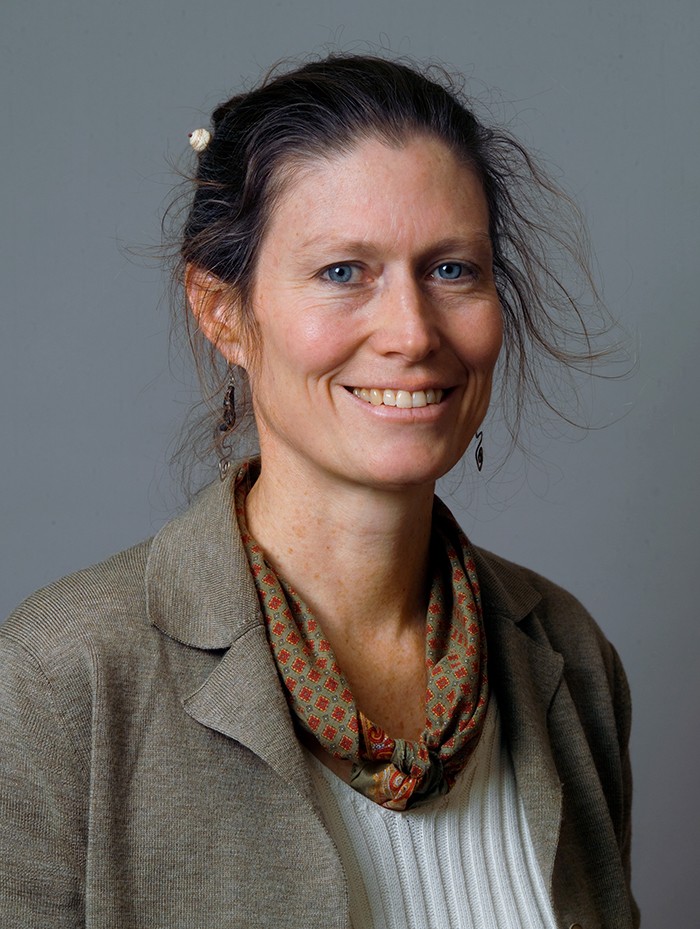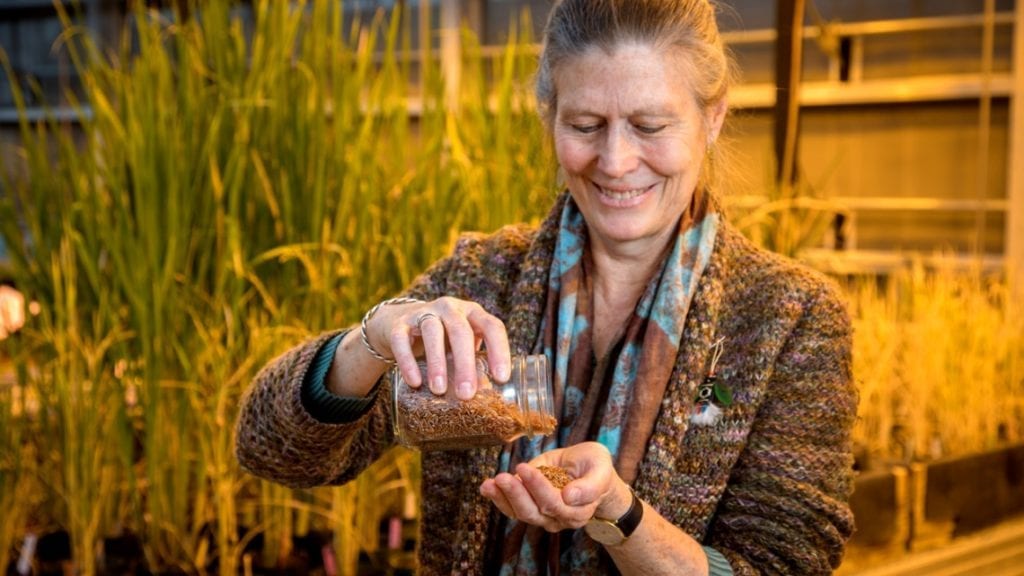News
Susan McCouch: splicing science with board service
 Susan McCouch is the Barbara McClintock Professor of Plant Breeding and Genetics in the School of Integrative Plant Science at Cornell University, and also an esteemed member of the Boyce Thompson Institute’s (BTI’s) Board of Directors.
Susan McCouch is the Barbara McClintock Professor of Plant Breeding and Genetics in the School of Integrative Plant Science at Cornell University, and also an esteemed member of the Boyce Thompson Institute’s (BTI’s) Board of Directors.
She first came to Cornell for her Ph.D., after which she spent five years at the International Rice Research Institute (IRRI) in the Philippines before returning to Cornell as a professor in 1995. In May of 2018, McCouch was elected to the National Academy of Sciences. With a deep understanding of the complexities of agricultural research around the world, McCouch brings a critical and unique perspective to the BTI Board.
Q: How would you summarize the focus of your research?
Susan: My lab investigates natural variation in rice, with emphasis on the genetic basis of complex traits such as disease resistance, abiotic stress tolerance, maturity, yield, and grain quality that are important to breeding. We work closely with gene banks to develop pre-breeding resources, and collaborate with breeders, most notably in developing countries, to implement precision breeding in rice improvement. My lab played a key role in the international effort to sequence the rice genome and to transform rice from an orphan crop into a model for genomics and breeding research. We also develop genomic and bioinformatics tools and databases to accelerate breeding, and I continue to collaborate actively with the major crop research centers in Asia, Africa, and Latin America. In 2018, we released “Scarlett“, the first high-yielding red-pericarp rice variety in the U.S. in collaboration with USDA colleagues.
Q: What inspired you to pursue this kind of research?
Susan: My interest in rice research was serendipitous. I joined the Department of Plant Breeding and Genetics at Cornell University as a graduate student the year the Rockefeller Foundation launched the Rice Biotechnology program. The Foundation awarded a grant to Steve Tanksley and Ronnie Coffman to develop the first molecular map of rice, and none of the more qualified graduate students in the department were interested in working on rice, which was an orphan crop at the time. For me, it was a stroke of good luck because I really wanted to work on that project. I had lived and worked extensively in Latin America, but I knew nothing about Asia, and I was eager for the opportunity to get to know that part of the world. Professionally, I wanted to focus my work on a crop that was important for global food security and I was fascinated to learn more about the diversity of genetic resources available in the gene bank at IRRI. Having developed the molecular linkage map, I understood the enormous potential of genomics for investigating genetic variation and increasing the efficiency of breeding. It was an intoxicating and exciting time to be a rice researcher.

Susan McCouch, professor of plant breeding and genetics, with grains of Scarlett, a new red rice cultivar she co-developed with collaborator Anna McClung, a researcher at the USDA Agricultural Research Service. Credit: Jason Koski
Q: What about your work, or specific breakthroughs you’ve discovered, do you find most rewarding?
Susan: What I find most rewarding about my work is the people I’ve gotten to know, the many collaborators, students and colleagues, the fascinating places I’ve had an opportunity to visit, and the way that I’ve come to appreciate the importance of rice in peoples’ lives. One of the most exciting research discoveries was finding introgressions from low-yielding wild ancestors and early landrace accessions of rice that could augment the performance of the best, high-yielding rice inbred and hybrid varieties. We worked with an international team of rice scientists to demonstrate that phenotypically inferior germplasm was often a valuable source of favorable alleles for rice improvement. Our work led to a deeper understanding of the profound subpopulation structure of Oryza sativa and the value of genomics for harvesting favorable alleles from exotic or unadapted germplasm. It’s been rewarding to develop genetic and genomic resources, tools and strategies that are in wide use throughout the global rice research community, and to have had a role in training scores of young researchers who will contribute to enhancing breeding efficiency in this globally important crop.
Q: Why did you decide to join the board of directors?
Susan: I have interacted with BTI faculty over many years, serving on student and university committees, as a scientific colleague, and also with the summer REU program organized by BTI. I appreciate the contributions that BTI scientists make to the plant science community at Cornell and wanted to learn more about BTI’s interests and concerns as a private research institution.
Q: What unique perspectives do you think your experience allows you to bring to the board?
Susan: My long experience with the international crop improvement centers and active collaborations with many scientists in both the developed and developing world provide me with a unique perspective about how scientific networks contribute to global food security and long-term sustainability. I am interested in BTI’s role in helping to train young researchers in both the biological sciences and in bioinformatics research and I hope to contribute to constructive relationships between BTI and Cornell.
Q: Where would you like to see BTI be in 10-15 years from now? What changes or advancements do you feel you personally could influence as a member of the board?
Susan: I would like to see BTI continue to grow its bioinformatics efforts and establish a strong research support and training program for researchers around the world who seek to improve their bioinformatics skills and ability to use big data and advanced analytics to address problems related to food security, biodiversity and environmental conservation. I believe an emphasis on documenting, exploring and utilizing natural variation in diverse species and ecosystems would give BTI a unique identity and a long-term ability to raise funds, attract stellar research scientists, pursue IP based on product development, and interact constructively with a wide range of people and institutions around the world.
We thank Susan for her dedication to the science at BTI and wish to offer our sincere appreciation for the vital insight she brings to the BTI Board of Directors.

